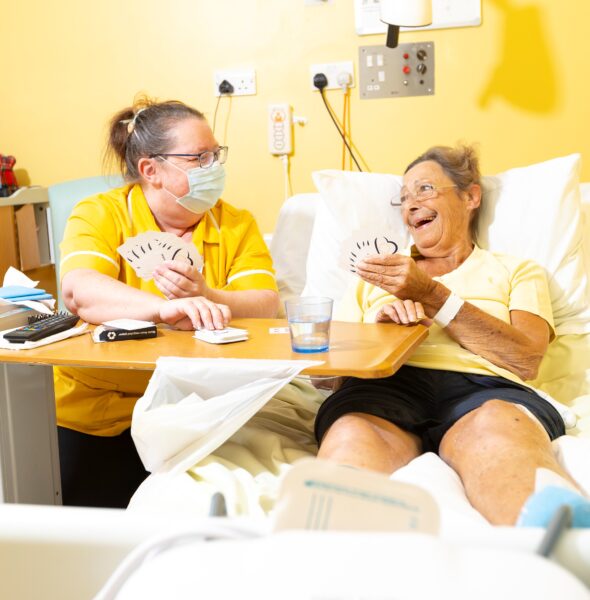Nobody Left Behind
We are a diverse trust, where colleagues of many races, religions and backgrounds work alongside each other for our communities. This culture of inclusion and acceptance is what makes #TeamKCHFT a great place to work.
 "Change is on the horizon"
"Change is on the horizon"
Clinical Lead Physiotherapist Omo Olaleye works in our Learning Disability Team.
She said: “My team at KCHFT is multicultural and includes people from African nations, Asia, South America and others. I’ve never faced discrimination from a colleague, thankfully.
“Any black clinician, however, will have experienced prejudice from patients. It used to be something we simply put up with. Thankfully, things are changing.
“We still get the odd referral where a patient says they need to be seen by a white colleague. These are a grim reminder that for a handful of people, we still aren’t equal. I don’t choose the patients I see based on their ethnicity or characteristics. If they have a problem with me treating them, they shouldn’t be provided with a service.
“My manager champions a no tolerance approach and will support with appointments if we’re at risk of abuse.
“I am part of the BAME (Black, Asian and minority ethnic) staff network at KCHFT, where I volunteer as a coach. I help support people to raise anything that doesn’t feel right, no matter how small.
“Change is on the horizon – mainly in the confidence of BAME staff and our allies. We are on our way to creating a culture where we are transparent about tackling discrimination.”
"Small things make a big difference"
Sue Mustill is registered blind and works as a project support manager in Human Resources. She said: “I was born with several eye conditions and am registered blind.
“It wasn’t until 2011, a year after the Equality Act 2010, that I felt happy to share my disability with employers. That’s 29 years of hiding away, unable to contribute fully at work.
“Now, 14 years on, I feel compelled not just to share, but to reach out and get support to do my job well.
“Some of the changes KCHFT has put in place for me are small, but make an enormous difference, I use large print format documents and get additional time for reading, large screens and a laptop stand. I also use flexible working to fit around medical appointments.
“In the past there was a lot of anxiety before starting a new role; will they judge me? Will I have to work twice as hard as everyone else? But my manager is so supportive that the constant doubt in my mind has finally been silenced.”
"I no longer label myself as odd, stupid or unsocial"
Team Administrator Tracy Daniels has central processing disorder and is recovering from a brain tumour. She said: “The cancer treatment caused chronic fatigue, brain fog, headaches, nausea, problems with concentration and working memory.
“I now work condensed hours, starting earlier when my brain function is best and I can work from home, avoiding exhausting car journeys. Being able to take annual leave at short notice and regular breaks, also gives me a chance to reset.
“Using three screens, having a quiet office, with natural light and overhead lighting, all help.
“The support I get from KCHFT has given me the confidence to bring up my needs.
“I no longer hide away and label myself as odd, stupid or unsocial and I have a platform to show others that diversity is a strength.”
 “If I can bring my whole self to work, patients can bring their whole selves to appointments”
“If I can bring my whole self to work, patients can bring their whole selves to appointments”
Jess Alexander, a qualified children’s nurse, is a cisgender queer woman who is neurodivergent and now works as a foot care assistant. She said: “The LGBTQ+ and neurodiversity staff networks meet monthly and, as well as providing a safe space to talk, we make changes like the rollout of gender and sexuality awareness training.
“I now have confidence to wear my rainbow lanyard and pronoun badges in my clinical role, which comes with benefits to patient care. One lady opened up about being bisexual with experience of abuse at home. I was able to refer her to LGBTQ+ specific domestic violence services.
“If I can bring my whole self to work, patients can bring their whole selves to appointments. They leave feeling heard, seen and that they’ve had a gold standard of care.”




